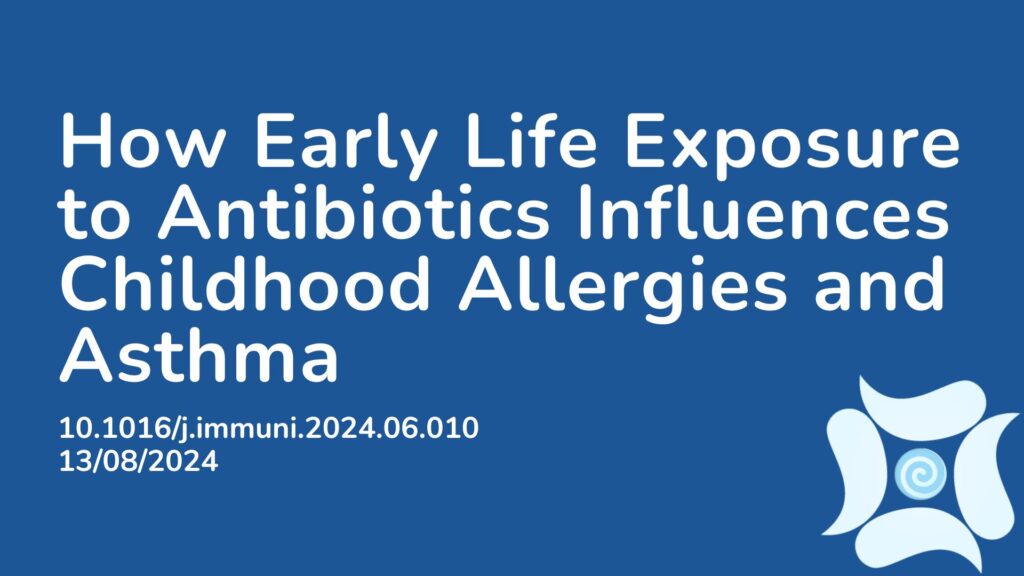Summary:
Allergic asthma occurs when there is an imbalance in how airway cells and dendritic cells (immune cells) work together. This imbalance can lead to the release of certain substances known as T helper 2 (Th2) cytokines, resulting in an increase in eosinophils (a type of white blood cell), more mucus production, and higher levels of immune triggers, or allergens, in the body. The airway epithelium, which lines the airways, consists of different types of cells that can recognize allergens and respond by producing signaling molecules called alarmins, cytokines, and chemokines, which help trigger an immune response. For example, when an airway is exposed to dust mites, it activates a receptor called Toll-like receptor 4 (TLR4) and the dendritic cells, leading to inflammation in the airways. There are strong connections between our environment, gut bacteria, and the risk of developing allergies and asthma in childhood. The gut bacteria form a stable microbial environment during the early years of life and are influenced by factors such as how babies are born, what they eat (like breast milk and solid foods), where they live, and other environmental conditions. Babies at higher risk for allergies often experience delayed or disrupted gut bacteria development, leading to lower production of beneficial compounds called short-chain fatty acids (SCFAs) during their first year. Interestingly, children who grow up on farms tend to have a lower risk of allergies and asthma. This may be because farm life helps their gut bacteria mature faster and increases the production of a specific SCFA called butyrate. Studies suggest that taking SCFAs or following a high-fiber diet could offer long-term protection against allergic airway inflammation. One specific compound called p-cresol sulfate, which is produced when gut bacteria break down L-tyrosine, has been linked to lower rates of asthma in children. Research shows that early antibiotic exposure can lead to a long-term reduction in certain beneficial bacteria and increase the risk of allergic airway inflammation in babies. However, it is still unknown how antibiotics affect disease susceptibility and what can be done to prevent or treat this issue. This study examined the compound indole-3-propionic acid (IPA) to see if it could help prevent allergic airway inflammation early in life. The results showed that antibiotics disrupted the microbiome of mice and that IPA provided protection, preventing worsening allergic reactions to house dust mites in adulthood. This suggests that the effects of early antibiotic use can make the lungs more sensitive to allergies, but using IPA may counteract the negative effects of antibiotics and provide a potential way to prevent these issues.
Abstract:
Antibiotic use in early life disrupts microbial colonization and increases the risk of developing allergies and asthma. We report that mice given antibiotics in early life (EL-Abx), but not in adulthood, were more susceptible to house dust mite (HDM)-induced allergic airway inflammation. This susceptibility was maintained even after normalization of the gut microbiome. EL-Abx decreased systemic levels of indole-3-propionic acid (IPA), which induced long-term changes to cellular stress, metabolism, and mitochondrial respiration in the lung epithelium. IPA reduced mitochondrial respiration and superoxide production and altered chemokine and cytokine production. Consequently, early-life IPA supplementation protected EL-Abx mice against exacerbated HDM-induced allergic airway inflammation in adulthood. These results reveal a mechanism through which EL-Abx can predispose the lung to allergic airway inflammation and highlight a possible preventative approach to mitigate the detrimental consequences of EL-Abx.
Article Publication Date: 13/08/2024
DOI: 10.1016/j.immuni.2024.06.010



